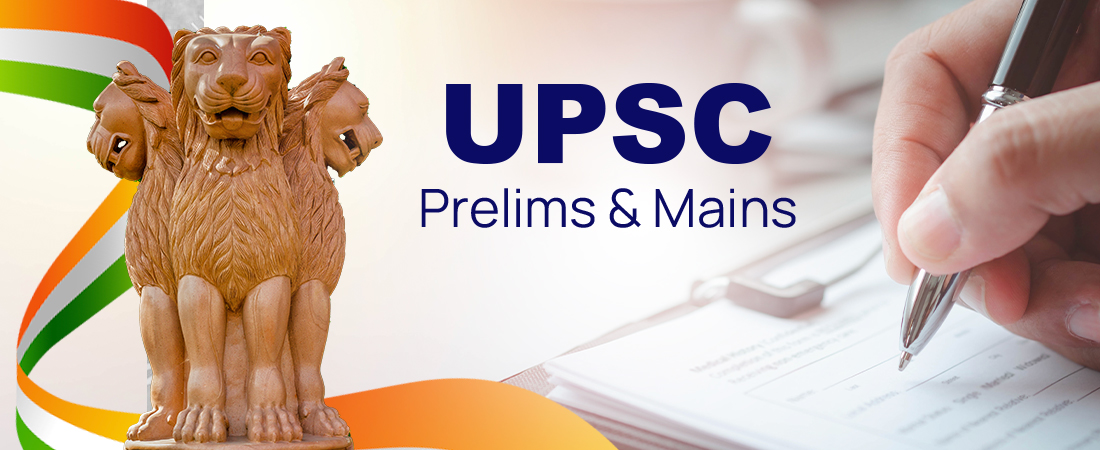The UPSC Civil Services Examination (CSE) Prelims is the first stage of one of India’s most prestigious exams, serving as a gateway to careers in the Indian Administrative Service (IAS), Indian Police Service (IPS), Indian Forest Service (IFS), and other services. Understanding the UPSC Prelims syllabus is critical for effective preparation. This SEO-optimized blog post provides a comprehensive overview of the UPSC Prelims syllabus for 2026, designed to help aspirants plan their studies efficiently.
What is the UPSC Prelims Exam?
The UPSC CSE Prelims is a screening stage comprising two objective-type papers: General Studies Paper-I and General Studies Paper-II (CSAT). Only candidates who clear the Prelims qualify for the Main exam. The Prelims syllabus covers a wide range of topics, testing candidates’ general awareness, analytical skills, and aptitude.
UPSC Prelims Syllabus 2026: Detailed Breakdown
General Studies Paper-I (GS-I)
- Total Marks: 200
- Duration: 2 hours
- Question Type: Objective (Multiple Choice Questions)
- Syllabus Topics:
- Current Events of National and International Importance: Major events in politics, economy, environment, science, and technology. Follow newspapers, government reports, and reliable news portals.
- History of India and Indian National Movement: Ancient, Medieval, and Modern Indian history, with a focus on the freedom struggle, key movements, and leaders.
- Indian and World Geography: Physical, social, and economic geography of India and the world, including climate, natural resources, and population dynamics.
- Indian Polity and Governance: Constitution, political system, Panchayati Raj, public policy, rights issues, and governance structures like Parliament, Judiciary, and Executive.
- Economic and Social Development: Sustainable development, poverty, inclusion, demographics, social sector initiatives, and economic concepts like GDP, inflation, and fiscal policy.
- Environmental Ecology, Biodiversity, and Climate Change: General issues on ecology, biodiversity conservation, environmental policies, and climate change impacts.
- General Science: Basic concepts in physics, chemistry, biology, and emerging technologies like AI, biotechnology, and space exploration.
General Studies Paper-II (CSAT)
- Total Marks: 200
- Duration: 2 hours
- Question Type: Objective (Multiple Choice Questions)
- Qualifying Nature: Candidates must score at least 33% to qualify.
- Syllabus Topics:
- Comprehension: Reading passages to test understanding and analytical skills.
- Interpersonal Skills: Communication and decision-making abilities.
- Logical Reasoning and Analytical Ability: Puzzles, analogies, syllogisms, and logical deductions.
- Decision-Making and Problem-Solving: Situation-based questions to assess judgment and quick thinking.
- General Mental Ability: Basic arithmetic, data interpretation, and logical reasoning.
- Basic Numeracy: Numbers, magnitudes, percentages, averages, ratios, and proportions (Class X level).
- Data Interpretation: Charts, graphs, tables, and data sufficiency (Class X level).
- English Language Comprehension Skills: Basic English comprehension (Class X level).
Key Features of the UPSC Prelims Exam
- Negative Marking: 1/3rd of the marks allotted to a question are deducted for each wrong answer.
- Cut-Off: Only GS-I marks are considered for the Prelims cut-off; CSAT is qualifying in nature.
- Bilingual Question Paper: Available in English and Hindi.
- Dynamic Syllabus: While the syllabus outline remains constant, the nature of questions evolves, emphasizing current affairs and conceptual clarity.
Preparation Tips for UPSC Prelims Syllabus
- Understand the Syllabus Thoroughly: Break down each topic and prioritize based on weightage in previous years’ papers.
- Read Standard Books:
- History: India’s Struggle for Independence by Bipan Chandra, A Brief History of Modern India by Spectrum.
- Geography: Certificate Physical and Human Geography by G.C. Leong.
- Polity: Indian Polity by M. Laxmikanth.
- Economy: Indian Economy by Ramesh Singh.
- Environment: Environment by Shankar IAS Academy.
- Science: NCERT textbooks (Class VI–X).
- Follow Current Affairs: Read newspapers like The Hindu or Indian Express, and refer to monthly magazines like Yojana or Kurukshetra.
- Practice CSAT: Solve previous years’ CSAT papers to improve speed and accuracy in reasoning, numeracy, and comprehension.
- Mock Tests: Take regular mock tests to simulate exam conditions and identify weak areas.
- Time Management: Allocate time to each subject based on your strengths and weaknesses.
Why Master the UPSC Prelims Syllabus?
The Prelims is the most unpredictable stage of the UPSC exam, with a vast syllabus and dynamic questions. A clear understanding of the syllabus helps aspirants focus on high-yield topics, avoid wasting time on irrelevant areas, and build a strong foundation for the Main exam. Clearing the Prelims is a crucial step toward achieving your dream of becoming a civil servant.
How to Stay Updated?
- Visit the UPSC official website (upsc.gov.in) for the latest notifications and syllabus updates for 2026.
- Follow reliable online platforms and coaching institute resources for curated study materials.
- Join online forums or study groups to discuss current affairs and share preparation strategies.

Hi, I’m Varun Pathak, the founder of TheSarkariNaukri.com—a dedicated platform for the latest updates on government jobs (Sarkari Naukri) in India. With years of experience curating reliable information on job vacancies, admit cards, exam results, and preparation strategies, I help thousands of aspirants navigate the competitive world of public sector opportunities. Passionate about job security, career growth, and empowering freshers for roles like IAS, IPS, and PSU positions, I update the site regularly with actionable insights for 2025 and beyond. Let’s connect to turn your career dreams into reality!
